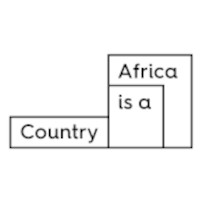If someone had to hold the title of father of African cinema, Ousmane Sembéne would be the most compelling candidate.
Image credit Jill E. Kelly © 2022.
In between Gina Prince-Bythewood’s The Woman King and the upcoming sequel to Marvel’s Black Panther, we find ourselves in an intriguing time with respect to the representation of Africa on the international screen. Since the first Black Panther, and Netflix’s expansion into the continent, there’s been a slew of American media conglomerates and personalities purporting to be doing the work of Africans, for Africans, in rehabilitating the continent’s image in the world. However, the influence these various figures seek to enact is impactful only in as much as it obscures the work done by generations of African cinema pioneers before them. It is precisely at a time like this that reclaiming the legacy of African cinema is of utmost importance.
On October 23, Africa Is a Country hosted a screening of Ousmane Sembene’s Mandabi, in partnership with The Sembene Project & Galle Ceddo, at The Bioscope theater in Johannesburg, South Africa. The story of Mandabi follows an illiterate patriarch who struggles with government bureaucracy, opportunistic neighbors and thieves, in order to cash in a lucrative money order from his nephew in Paris, France.
This screening of Mandabi serves as the beginning of a project with Africa is a Country, where I will be creating a series of video essays profiling landmark figures of African cinema. Africa’s contributions in canonical representations of the world’s cinema are often absent or woefully understated. The misrepresentation is oft a symptom of discrimination more than a reflection of an absence of any rich tradition in the medium. The video essay series hopes to highlight and reposition the legacy of African cinema as significant in the cannon of world cinema.
I felt it fitting to start with Ousmane Sembéne, as his life’s work and ethos has set a precedent for what will become a recurring theme throughout this project. While widely regarded as the father of African cinema, Sembéne often rejected the title. In part, because of his acknowledgment that the stature afforded to Sembene was also duly owed to his contemporaries across his country and the continent.
On the eve of Sembene’s 100th birthday on January 1, 2023, this video essay dedicated to his memory hopes to illuminate the remarkable trajectory of his life’s journey from humble beginnings as the son of a fisherman, to a towering figure who imprinted his influence across the world through an unwavering devotion through his cinema and literature to a progressive future for Africa.
Sembéne’s cinema is a testament to his belief that the rehabilitation of Africa’s cinematic image need not exist for the approval or admiration of the West, but rather to empower and dignify those within the continent. Instead of lulling us with fabrications of a glorious past or utopic future, he engages and interrogates with sincere elucidations of the world around him, presented with a sharp eye and masterful touch that’s preserved his work for decades.
It may be true that it is slightly sensationalist, or ahistorical to label him as the father of African cinema, but if someone had to hold the title, Ousmane Sembéne would undoubtedly be the most compelling candidate.






